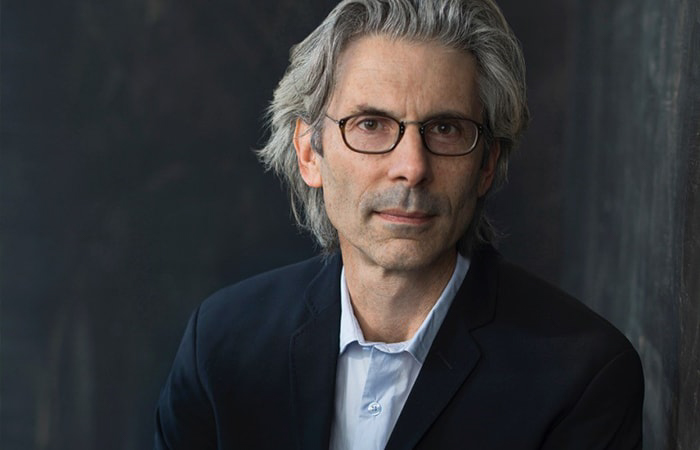When it comes to the intersection of psychology and spirituality, few names stand out quite like Mark Epstein. Known for his unique blend of Eastern philosophy and Western psychological practices, Epstein has carved a niche that resonates with many seeking deeper understanding in their lives. His work not only challenges conventional wisdom but also invites readers into a richer exploration of self-awareness and healing.
Curious about who he is? This guide will take you through the labyrinthine journey of Mark Epstein’s life—from his formative years to his groundbreaking contributions in psychology. Whether you’re familiar with his writings or just discovering them now, there’s something here for everyone eager to delve into the mind behind these transformative ideas. Let’s explore how one individual can impact both academia and popular culture while bridging two seemingly disparate worlds.
Who is Mark Epstein?
Mark Epstein is a prominent American psychiatrist and author, renowned for his innovative approach to mental health. His work integrates the principles of psychotherapy with insights from Buddhist philosophy. This unique combination sets him apart in both the psychological community and among readers seeking personal growth.
Born in 1953, Epstein has spent decades exploring the complexities of the human mind. He studied at Harvard Medical School, where he began to develop his distinctive perspective on healing and self-awareness.
Epstein’s writings have garnered attention for their accessibility and depth. He invites readers into contemplative practices while addressing common psychological struggles. His ability to articulate profound concepts in relatable terms makes him a significant figure in contemporary discussions around mental wellness.
Through lectures, books, and interviews, Mark Epstein continues to inspire countless individuals on their journey toward understanding themselves better through a holistic lens.
Early Life and Education
Mark Epstein was born in 1953 in New York City. Growing up in a vibrant urban environment, he was exposed to various cultures and ideas from an early age. This rich backdrop influenced his perspectives on life and psychology.
Epstein attended Columbia University, where he earned his undergraduate degree. His time at Columbia deepened his interest in psychology and philosophy. He found himself drawn to Eastern thought, which would shape much of his future work.
After college, he pursued further studies at the New York University School of Medicine. Here, he explored psychiatry while integrating Buddhist principles into Western practices. This unique blend of disciplines became a hallmark of his later writings and teachings.
Throughout this formative period, Epstein developed a keen understanding of human emotion and behavior—elements that would define both his career and contributions to psychological discourse.
Professional Career and Achievements
Mark Epstein has carved a niche for himself in the world of psychology and psychotherapy. He seamlessly blends Buddhist philosophy with Western psychological principles, creating a unique therapeutic approach.
His professional journey began as a psychotherapist, where he emphasized mindfulness and self-awareness. This integration of spiritual practices into clinical settings set him apart from his peers.
Epstein is also an accomplished author. His books, such as “Thoughts Without a Thinker” and “The Trauma of Everyday Life,” have garnered critical acclaim. They explore complex topics like trauma through both psychological and Buddhist lenses.
He has contributed significantly to various journals and often speaks at conferences worldwide. His insights resonate with those seeking deeper understanding in their mental health journeys, making him a respected figure among professionals and laypeople alike.
Influential Works and Theories
Mark Epstein’s contributions to psychology are profound and varied. His works often merge the insights of Western psychotherapy with Eastern spiritual traditions. This unique blend has opened many minds to new ways of understanding mental health.
One notable book, “Thoughts Without a Thinker,” explores how Buddhist concepts can address common psychological issues. Epstein argues that mindfulness and meditation offer practical tools for self-exploration.
In “The Trauma of Everyday Life,” he delves deeper into the intricacies of human suffering. He suggests that our everyday experiences shape us just as profoundly as major traumas do.
Epstein also emphasizes the importance of vulnerability in healing. By embracing our emotions rather than suppressing them, we pave the way for genuine growth and connection.
His theories challenge conventional notions about therapy, encouraging an integration of wisdom from various disciplines in pursuit of mental wellness.
Controversies and Criticisms
Mark Epstein has faced his share of controversies throughout his career. Critics often challenge his interpretations of Buddhism and psychology, questioning whether he adequately represents both fields.
Some scholars argue that Epstein oversimplifies complex Buddhist concepts. They believe this could mislead readers seeking genuine understanding. His blending of Eastern philosophy with Western psychological practices raises eyebrows among purists.
Additionally, some mental health professionals criticize him for promoting self-help ideas without sufficient scientific backing. This skepticism stems from concerns about the potential commercialization of therapeutic techniques.
In interviews, Epstein has sometimes been forthright about his views on mainstream psychology, which hasn’t always sat well with traditionalists in the field. These remarks have sparked debates regarding the validity and ethics surrounding mental health practices today.
Despite these challenges, Mark continues to engage with diverse audiences while provoking thought around essential topics in modern psychology and spirituality.
Contributions to the Field of Psychology
Mark Epstein has made significant contributions to the field of psychology, particularly in integrating Eastern philosophies with Western psychological practices. His work often explores the intersection of mindfulness and psychotherapy, shedding light on how ancient wisdom can enhance modern mental health approaches.
He emphasizes the importance of self-awareness and acceptance in healing processes. By weaving Buddhist principles into therapeutic contexts, Epstein offers fresh perspectives for practitioners and patients alike.
His writings encourage a deeper understanding of human emotions, inviting readers to explore their inner landscapes without judgment. This approach not only enriches traditional therapy but also fosters greater compassion towards oneself.
Epstein’s influence extends beyond academic circles; his ideas resonate with everyday individuals seeking clarity amid life’s chaos. Through his unique lens, he challenges conventional beliefs about mental health, pushing boundaries that expand our understanding of consciousness and well-being.
Impact on Popular Culture
Mark Epstein’s influence extends far beyond the confines of academia. His ideas have permeated various facets of popular culture, resonating with audiences worldwide.
Television series and documentaries often reference his theories on mindfulness and self-awareness. This has sparked conversations about mental health and emotional well-being, encouraging many to seek deeper understanding.
Epstein’s books have become staples in book clubs, bridging gaps between psychology and spirituality. They inspire readers to explore their inner lives while engaging with complex concepts in accessible ways.
Moreover, celebrities frequently cite him as a significant influence during interviews or social media posts. His work fosters a dialogue around vulnerability and authenticity that resonates across generations.
From podcasts discussing personal growth to art inspired by his insights, Mark Epstein’s impact is undeniably woven into the fabric of modern culture. He challenges individuals to rethink their approaches to life’s most profound questions.
Personal Life and Philanthropy
Mark Epstein leads a life that intertwines personal experiences with his professional endeavors. Known for his openness about mental health, he draws from his own struggles to connect with others. This relatability resonates deeply, especially among those facing similar challenges.
His philanthropic efforts reflect this commitment to mental wellness. Epstein actively supports various charities and initiatives aimed at providing resources for mental health awareness. He believes in the power of community and often collaborates with organizations working towards destigmatizing psychological issues.
In addition to monetary contributions, Mark engages in public speaking events focused on mindfulness and emotional well-being. His passion for helping others extends beyond words; it manifests in tangible actions that inspire change within society.
Through both personal connections and philanthropic ventures, he exemplifies how one can make a meaningful impact while navigating their own journey through life’s complexities.
Legacy and Recognition
Mark Epstein’s legacy is etched in the realms of psychology and mindfulness. His work has sparked conversations around the intersection of eastern philosophy and western psychotherapy.
He has been a pioneer in merging these two worlds, making complex ideas accessible to many. This unique blend offers profound insights into mental health and personal growth.
Recognition for his contributions comes not just from peers but also from readers who found solace in his writings. His books continue to resonate long after their publication, influencing countless lives.
Epstein’s influence extends beyond academia; he is a sought-after speaker at various workshops and seminars. Through storytelling and personal anecdotes, he captivates audiences with relatable wisdom.
His efforts have earned him accolades within psychological circles, solidifying his place as an essential figure in contemporary thought on well-being. The impact of Mark Epstein will likely inspire future generations of thinkers and practitioners alike.
Conclusion
Mark Epstein’s journey through the realms of psychology and literature is both inspiring and enlightening. His insights bridge ancient wisdom with contemporary issues, making his work accessible to many.
His ability to intertwine personal experience with professional knowledge has attracted a diverse audience. Readers find solace in his words, often reflecting on their own lives.
Epstein’s contributions extend beyond academia; they resonate deeply within popular culture. This connection fosters a broader understanding of mental health and well-being.
As he continues to write and speak publicly, the legacy of Mark Epstein remains vibrant. His influence will likely continue shaping thoughts around mindfulness and emotional healing for years to come.
FAQs
What is the primary focus of Mark Epstein’s work?
Mark Epstein primarily focuses on the intersection of psychology and spirituality. He explores how Buddhist concepts can enhance Western therapeutic practices.
How has Mark Epstein influenced modern psychology?
Epstein has brought awareness to mindfulness and meditation as effective tools in psychotherapy. His integration of Eastern philosophies into Western frameworks has inspired many practitioners.
Are there specific books by Mark Epstein that are highly recommended?
Yes, “The Trauma of Everyday Life” and “Thoughts Without a Thinker” are two notable works that offer insights into his theories and applications.
Has Mark Epstein faced any significant controversies during his career?
While he’s been praised for his innovative ideas, some critics argue about the merging of Buddhism with traditional psychological approaches. However, these discussions often lead to healthy debates within the field.
Does Mark Epstein engage in philanthropic activities?
Yes, he is involved in various charitable initiatives aimed at promoting mental health awareness and education. His efforts reflect his commitment to improving lives beyond just academic contributions.
What legacy does Mark Epstein leave behind in psychology?
His unique approach continues to inspire new generations of psychologists who seek a more holistic understanding of human experience.

















